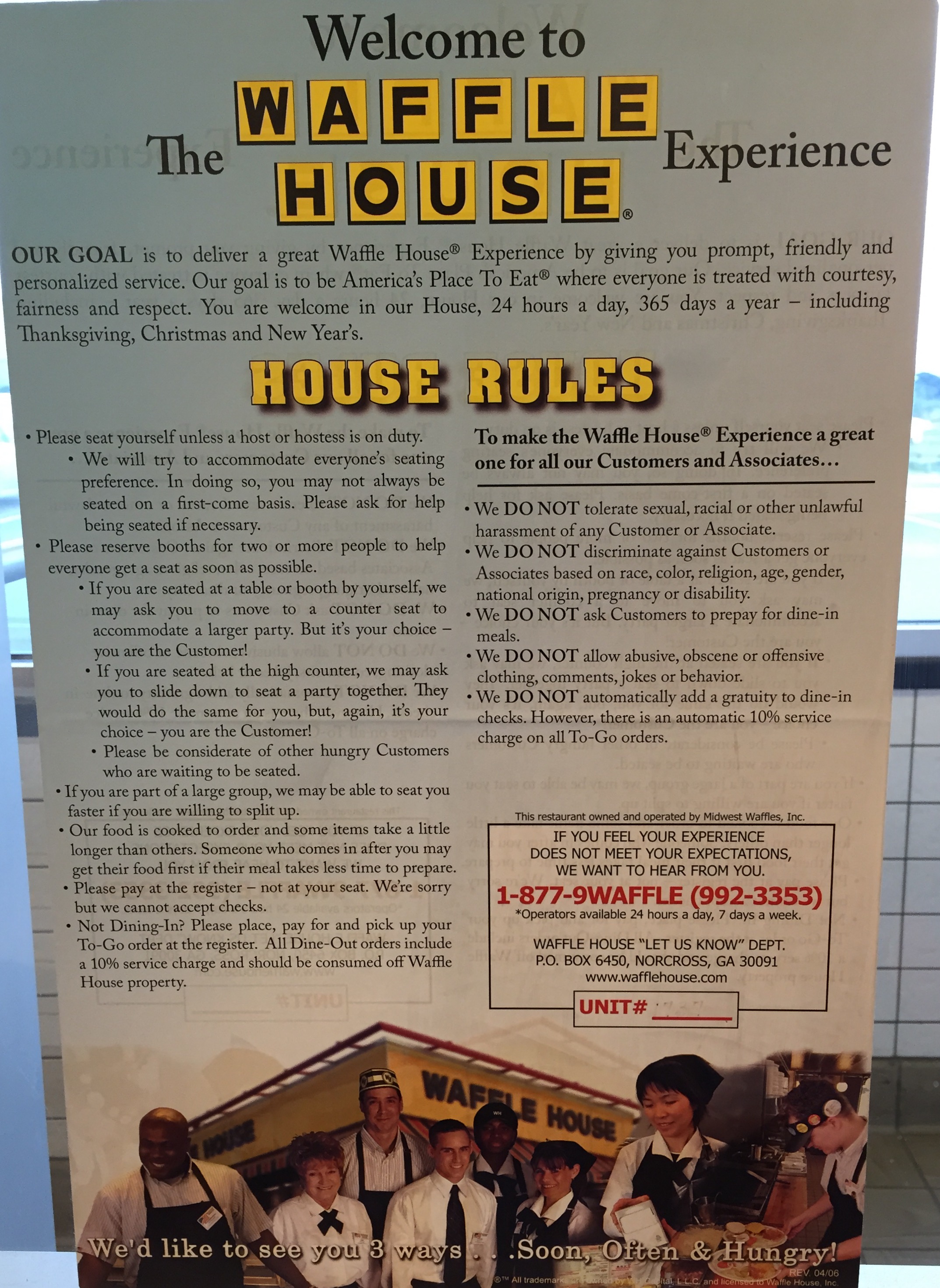 On the first leg of our road trip home from New York, we got hungry in Ohio.
On the first leg of our road trip home from New York, we got hungry in Ohio.
And although one of Cuppa SEO’s web designers knows Ohio like the back of his hand (he’s from there), we had no idea where to eat. But with the help of a Google search, wefound a Dunkin’ Donuts and a Waffle House in close proximity to each other.
Figuring the food might be a little healthier, we chose the Waffle House. And although it was an interesting analog user experience (AUX), it was not a pleasant one.
Upon arriving at the parking lot, everything seemed fine … until we entered the restaurant, which was freezing! It literally must have been between 30-40 degrees inside.
We spoke with the waitress about it, and she explained that during the employee orientation process she learned that the directive from leadership was to “get people in and out in 20 minutes or less,” because they “didn’t want people getting comfortable and hanging around.” And since employees aren’t allowed to adjust the temperature, many of them wear three layers of clothing to work each day.
Other things that made this a poor analog user experience included the fact that they got my younger son’s order wrong, and the incessant chatter from the wait staff about their personal lives for all patrons to hear.
What’s interesting is the leadership team also felt it was important to post the sign you see above, “Welcome to the Waffle House Experience,” which states their goal is to deliver a great experience where everyone is treated with “courtesy, fairness and respect.” Maybe their customer demographic is penguins?
The philosophy on the Waffle House collateral told a very different story than the actual customer experience of both the internal and external customer.
How this Relates to Your Website & Your Business Overall
The worst part of our experience wasn’t the cold, but the fact that the Waffle House made it all about them.
It wasn’t about the customer experience, the best crispy bacon in town or the waitress that gave just the right amount of attention. It was a transaction, one which had no meaning other than monetary gain.
It was all about volume. Making the most profit possible, which was so prevalent that there was a purposeful desire to cause discomfort by “freezing out” the customers.
To avoid giving customers a “Waffle House Experience,” it’s important for all of us to ask the following questions about our website AND our in-person interactions …
- Is my website about my customer, or is it about me? If it’s not customer facing, it needs to change.
- Are we addressing customer pain points and needs, or telling them how great we are?
- Are we showing customers how our product or service can be a benefit to them? Or are we just asking them to buy?
- What can I do to make it so people want to hang around longer on my website? Do I have a single, clear call to action for them to follow on each page? Is the content on my pages, and on my blog, chock-full of relevant information that’s actually helpful?
- Are we developing relationships with customers?
- And to the above point, are my employees following a customer-centric philosophy, or are they me-centric? Commission structures make it very difficult for employees to look at a customer as a whole person, as opposed to a sale. One of the greatest customer-facing philosophies I’ve ever seen, and been a part of, was at Apple. Why? Because when a customer entered an Apple store, it was never about how much you could sell — it was about understanding who they were, what they needed and then offering the very best solution possible.
Whether your business is trying to make its $50 million annual revenue quota, or simply trying to make sure there’s enough income to pay the bills and your team, it can be very easy to start perceiving people as things that need to be moved through a funnel.
And although the funnel analogy is excellent for analyzing your processes, once people are no longer looked at as individuals, your company runs the risk of becoming me-centric. Avoid this narcissistic trap by always making it about your customer. They’ll appreciate it, they’ll tell their friends and colleagues — and most importantly they’ll never freeze their butts off in your office or retail store!